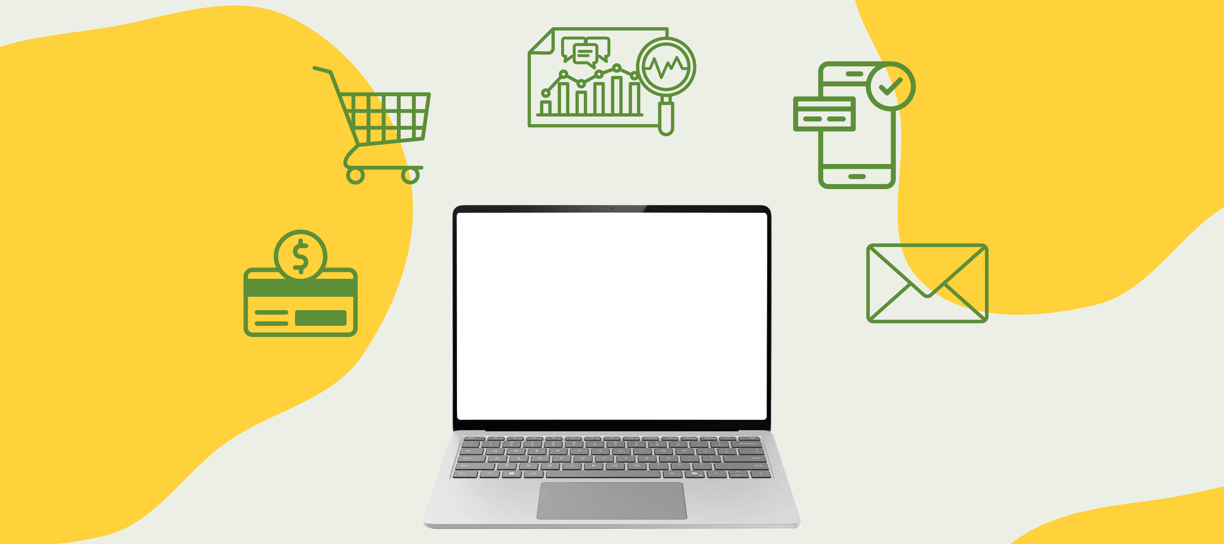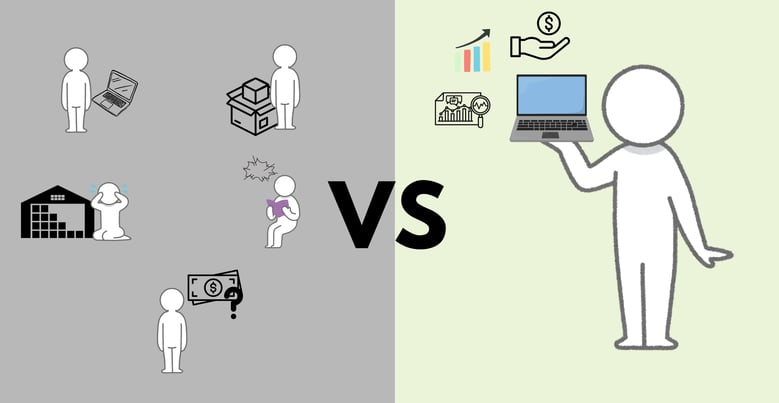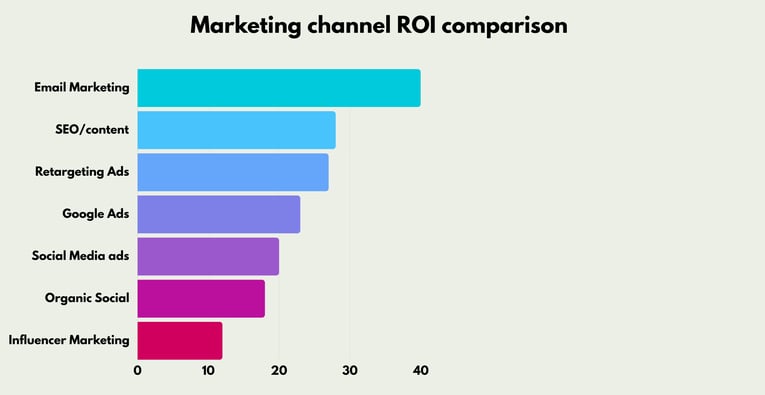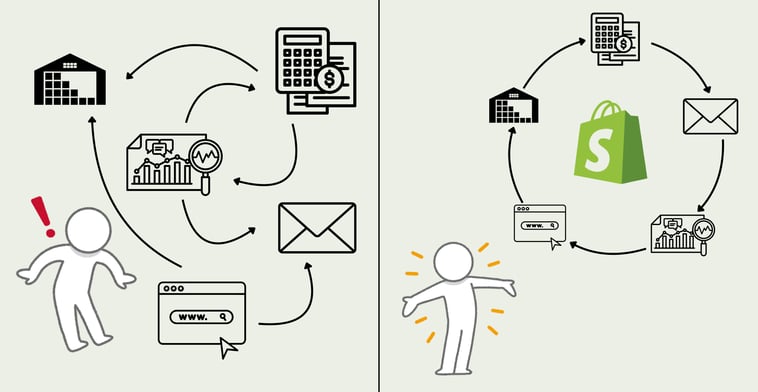Small Business, Big Dreams: Essential Tools Every Online Entrepreneur Needs to Succeed
5 min read


Small Business, Big Dreams: Essential Tools Every Online Entrepreneur Needs to Succeed
Starting an online business can feel overwhelming. Between product sourcing, marketing, customer service, and everything in between, it's easy to get lost in the weeds. But here's the thing – you don't need to reinvent the wheel or build everything from scratch.
The most successful online entrepreneurs know that having the right tools in your toolkit can make the difference between struggling to stay afloat and scaling to six figures. Today, we're diving into the essential tools that every online business owner needs to not just survive, but thrive in the competitive digital marketplace.
Why the Right Foundation Matters More Than You Think
Before we jump into specific tools, let's talk about why this matters. Every minute you spend wrestling with clunky software or manually handling tasks that could be automated is a minute you're not spending on growing your business.
Think about it this way: if you're manually tracking inventory in spreadsheets, processing payments one by one, and trying to manage customer data across multiple platforms, you're essentially working in your business instead of on your business.
The entrepreneurs who scale quickly understand that investing in the right tools upfront actually saves money in the long run. It's about working smarter, not harder.


1. E-commerce Platform: Your Digital Storefront
Your e-commerce platform is literally the foundation of your online business. This isn't just about having a website – it's about having a complete system that handles everything from product listings to payment processing to order fulfillment.
Here's what you need to look for:
Mobile-First Design: Over 70% of online shopping happens on mobile devices. Your platform needs to look and function flawlessly on smartphones and tablets.
Built-in Payment Processing: You want seamless checkout experiences with multiple payment options – credit cards, PayPal, digital wallets, and even buy-now-pay-later options.
Inventory Management: Real-time tracking that automatically updates stock levels across all your sales channels.
SEO Optimization: Built-in tools that help your products get found in search engines without needing a computer science degree.
Scalability: Something that grows with you from your first sale to your thousandth.
The platform that consistently delivers on all these fronts is [...]. It's designed specifically for entrepreneurs who want to focus on building their business, not wrestling with technology.


2. Payment Processing: Making Money Easy
Let's be real – if customers can't pay you easily, they won't buy from you. Period.
Your payment processor needs to handle multiple payment methods, provide fraud protection, and offer competitive rates. But here's what many new entrepreneurs miss: the checkout experience itself can make or break a sale.
Look for features like:
One-click checkout options
Guest checkout (not everyone wants to create an account)
Transparent fee structures
Fast payout times
Automatic tax calculations
The good news? Many comprehensive e-commerce platforms include payment processing as part of their service, which means fewer moving parts and better integration. [...] handles this seamlessly, with everything built into one system. In fact, Shopify's checkout is consistently ranked #1 in the industry because it's the fastest and easiest for customers to complete their purchases – which translates directly to higher conversion rates for your business.
3. Inventory Management: Staying in Stock Without Breaking the Bank
Running out of popular products is a nightmare. Overstocking slow-movers ties up your cash flow. Getting this balance right is crucial for profitability.
Your inventory management system should:
Track stock levels in real-time
Send low-stock alerts
Handle variants (different sizes, colors, etc.)
Integrate with your sales channels
Provide sales forecasting
For many small businesses, this functionality is built right into their e-commerce platform rather than requiring separate software. This integration prevents the headaches that come with trying to sync data across multiple systems.
4. Marketing and Customer Acquisition Tools
Having a great product means nothing if no one knows about it. Your marketing toolkit needs to cover multiple channels:
Email Marketing: Still one of the highest ROI marketing channels. Look for platforms that integrate with your store data so you can send personalized recommendations and abandoned cart recovery emails.
Social Media Integration: Your products should be sellable directly through Instagram, Facebook, and TikTok. Social commerce is exploding, and you want to be where your customers are.
SEO Tools: Built-in optimization features that help your products rank in Google searches without needing to become an SEO expert.
Analytics and Reporting: Data-driven decisions beat gut feelings every time. You need clear insights into what's working and what isn't.
Many entrepreneurs make the mistake of trying to piece together multiple marketing tools. The most efficient approach is finding a platform that has robust marketing features built-in. [...] excels here, offering everything from email marketing to social media integration in one place.


5. Customer Service and Support Systems
Happy customers become repeat customers. And repeat customers are the lifeblood of any successful business.
Your customer service toolkit should include:
Live chat functionality
Easy return and refund processing
Order tracking and updates
FAQ and help center capabilities
Customer feedback collection
The key is making customer service feel effortless – both for you and your customers. Automated systems can handle routine inquiries, while complex issues get routed to you directly.
6. Analytics and Business Intelligence
You can't improve what you don't measure. Your analytics tools need to give you insights into:
Best-selling products and categories
Customer behavior patterns
Traffic sources and conversion rates
Seasonal trends
Profit margins by product
This data helps you make smart decisions about inventory, marketing spend, and business growth strategies.
The Integration Advantage
Here's something most "essential tools" lists miss: integration matters more than individual features.
Having the best email marketing tool won't help if it doesn't talk to your e-commerce platform. Amazing analytics are useless if they're not pulling data from your actual sales system.
This is why many successful entrepreneurs choose comprehensive platforms over piecemeal solutions. When everything works together seamlessly, you spend less time managing tools and more time growing your business.
Getting Started: Your Action Plan
Audit your current setup – What's working? What's causing frustration?
Identify your biggest pain points – Is it payment processing? Inventory management? Marketing?
Research integrated solutions – Look for platforms that solve multiple problems at once
Start with a trial – Most reputable platforms offer free trials so you can test before committing
Plan your migration – If you're switching from another system, plan the transition carefully


The Bottom Line
Building a successful online business isn't about having the most tools – it's about having the right tools that work together seamlessly.
The entrepreneurs who scale fastest understand that their technology stack should be an accelerator, not a roadblock. Every tool you choose should either save you time, make you money, or provide insights that help you make better decisions.
Ready to stop juggling multiple platforms and start focusing on what really matters – growing your business? [...] offers everything we've discussed in this post, integrated into one powerful platform.
Your future self will thank you for making the smart choice today. After all, small businesses with big dreams need tools that can keep up with their ambitions.
